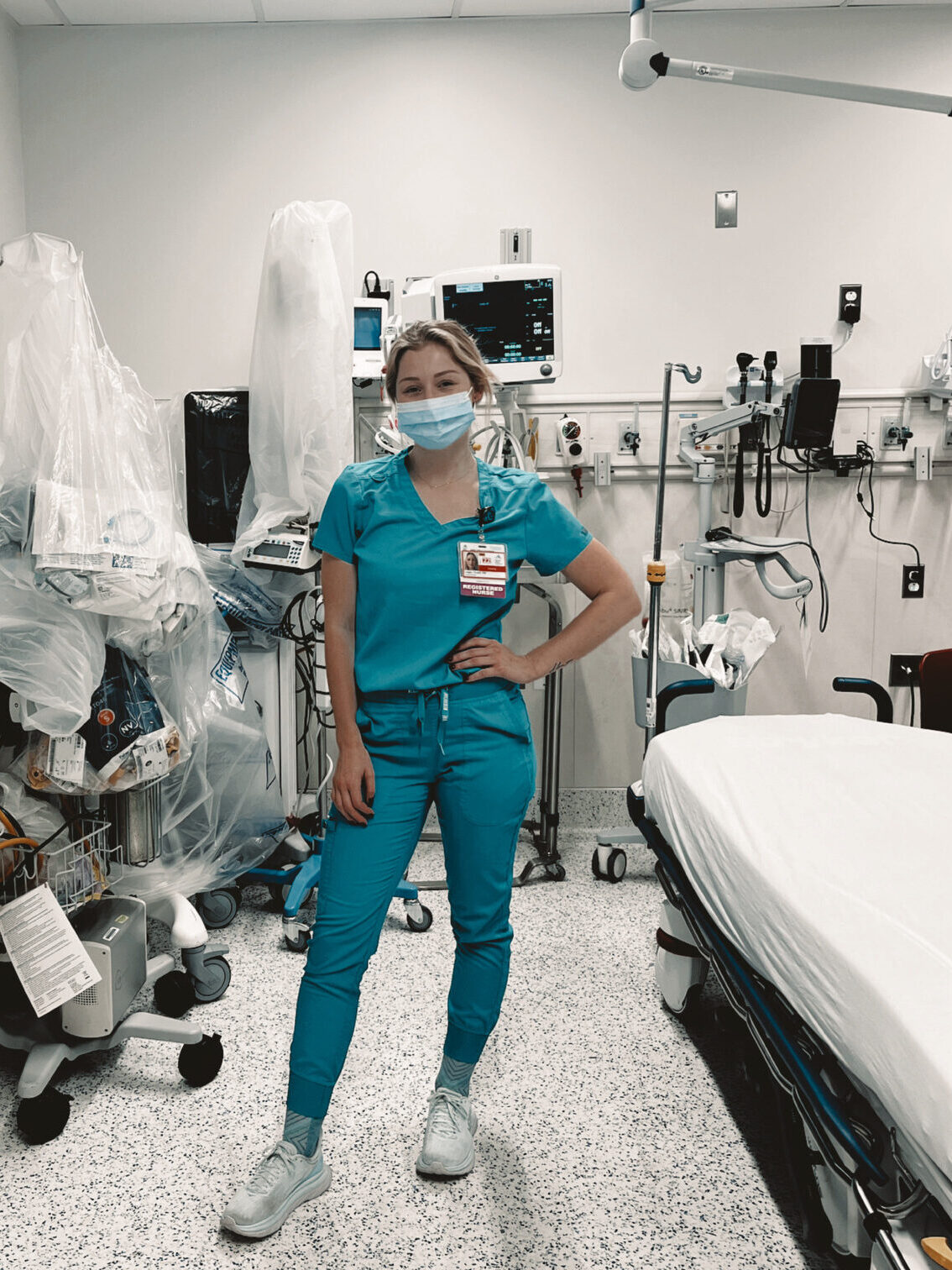The process for a Canadian to become a travel nurse in the US differs significantly compared to Americans. There are many things to consider when deciding if it is the right fit for you. Below outlines some of those considerations, which will provide insight into the world of travel nursing as a Canadian RN.
1. When should I begin the process?
Before you begin, it is important to note that the process of becoming a travel nurse in the US takes 6-8 months, from the time you pay for CGFNS to your first day on the job.
2. How much does it cost?
You should anticipate spending $2500-4000 CAD to complete the application process and to be eligible to work in the US. These fees include your CGFNS certificate, transcripts, flights, background checks etc.
You must have money saved before travel nursing. Application fees are costly, and with the uncertainty of contracts, you may be left without work unexpectedly. Facilities can delay and cancel contracts at any time, with little notice.

3. How much experience do I need?
A minimum of 2 years experience in your specialty is recommended (and, depending on the hospital, is required). Due to the lack of orientation and high expectations of facilities, it is vital that you feel comfortable and confident learning on the fly, often with only 1 or 2 days of orientation.
Most team members you will work alongside offer support and guidance, especially on your first contract. However, you are still considered a relief nurse for the department and must feel comfortable and confident in a less structured environment.
4. Can I work in any specialty?
You can only work assignments within your scope of practice (i.e if your specialty is pediatrics, you must stick to that).
Facilities will require recent experience in that specialty (within 6 months- 1 year) of applying. This is important to remember when planning your leave from your Canadian job.
Some US hospitals require previous travel nurse experience in the US and will reject your application until you have that experience. It is essential to be flexible and have honest expectations about not being in the perfect location or your dream hospital for your first contract.
5. Can I work in Canada and the USA in the same year?
A lot can can happen after you accept a job offer. As mentioned above, it is common to be delayed or even have your contract cancelled before it even begins. Discussing your travel nurse plans with your manager can be valuable to determine when your last working day should be or if you plan on staying casual.
Some nurses will stay casual with their hospitals in Canada, take time off between contracts and work some shifts in Canada during that time off. Others will work 1 or 2 assignments a year in the US but primarily live and work in Canada.
What’s Next?

You are the only one who can determine if you are ready to be a travel nurse, and it is essential to reflect on your nursing career to decide whether you feel prepared for that next step. I advise having a few years of experience within your specialty and working alongside seasoned nurses before travel nursing.
I have been a pediatric nurse for 5 years and worked at a level 1 Pediatric Trauma centre. This experience allowed me to feel confident caring for the sickest patients and to be a team leader when necessary- both of which are important when travel nursing.
Although the process can seem nerve wracking and intimidating, travel nursing is an exciting and fulfilling opportunity that is worth exploring. If you feel ready to take the jump, click here to read our in-depth guide on becoming a travel nurse in the US.

I’m Logan, a Pediatric Emergency Room Nurse from Canada, currently living and travel nursing in NYC. Follow me on my journey through the US and my travels around the world.

